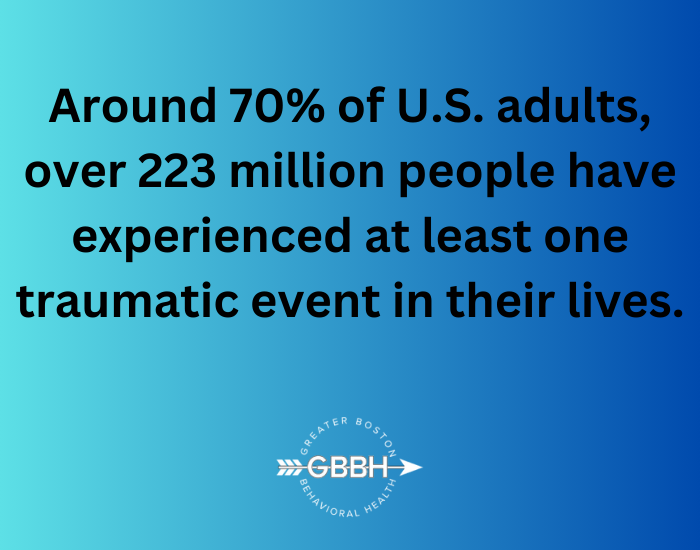Trauma can have a lasting impact on an individual’s mental health. Understanding this is crucial for effective treatment. Trauma-informed care (TIC) is an approach that recognizes the effects of trauma and prioritizes a supportive environment. This blog post explores the importance of trauma-informed care in mental health treatment, particularly in programs available at mental health treatment centers in Massachusetts.
Understanding Trauma-Informed Care
Trauma-informed care is not just a treatment method; it’s a philosophy. It involves understanding how trauma affects a person’s life and their interactions. In this approach, mental health professionals are trained to recognize signs of trauma and respond appropriately. This means being sensitive to the potential triggers for patients and providing a safe space for them to express their feelings.
In many mental health treatment centers, TIC is integrated into various therapy programs. By acknowledging a person’s trauma history, therapists can tailor their approach, making treatment more effective and compassionate.
The Need for Trauma-Informed Care in Mental Health Treatment
Many individuals seeking mental health treatment have experienced trauma at some point in their lives. This can include anything from childhood abuse to recent traumatic events like accidents or natural disasters. When these experiences are ignored or overlooked, traditional therapy methods might not work as well.
Key Principles of Trauma-Informed Care
Trauma-informed care is built on several key principles that guide mental health treatment:
Safety
This principle emphasizes the importance of creating a safe environment for clients. This encompasses physical safety—ensuring that the treatment facility is secure—as well as emotional safety, where clients feel respected, understood, and free from judgment.
Trustworthiness
Building trust is essential in any therapeutic relationship. Providers can foster trust by being transparent about treatment processes, expectations, and the limits of confidentiality, thus allowing clients to feel secure in sharing their experiences.
Choice
Empowering clients by giving them choices in their treatment fosters a sense of autonomy. This includes involving clients in decision-making about their care, treatment options, and goals, allowing them to take an active role in their recovery journey. This includes discussing various therapies, such as cognitive-behavioral therapy (CBT) or dialectical behavior therapy (DBT), and allowing them to make decisions that affect their care.
Collaboration
Trauma therapy program care promotes a collaborative approach, where therapists and clients work together as partners. This involves shared decision-making, where the client’s voice is integral to the treatment process.
Empowerment
Supporting clients in regaining control over their lives is vital in trauma-informed care. This can be achieved by focusing on clients’ strengths and resilience, helping them to build skills that enhance their self-efficacy and coping strategies.
Approximately 70% of adults in the United States—over 223 million people—have experienced at least one traumatic event in their lifetime. Traumatic events encompass a wide range of experiences, all of which can leave lasting emotional, psychological, and even physical effects. Common sources of trauma include:
- Abuse and Neglect: Physical, emotional, and sexual abuse are unfortunately common sources of trauma that can occur in childhood or adulthood. Survivors of abuse may experience long-term effects such as anxiety, depression, post-traumatic stress disorder (PTSD), and difficulties in interpersonal relationships.
- Violence: Exposure to violence, whether through personal experience, witnessing violent acts, or living in communities with high rates of violence, is a significant source of trauma. This can include domestic violence, school shootings, gang violence, or hate crimes. Exposure to violence is strongly correlated with PTSD and other mental health disorders.
- Accidents and Natural Disasters: Serious accidents—such as car crashes, workplace injuries, or natural disasters like hurricanes, earthquakes, and fires—can be life-altering. Survivors may struggle with fear, guilt, and flashbacks, affecting their mental well-being and daily functioning.
- Loss of a Loved One: The death of a family member, friend, or partner can lead to traumatic grief, especially if the loss was sudden or violent. This type of trauma can disrupt a person’s sense of safety, purpose, and emotional stability, leading to complex grief or depression.
- Medical Trauma: For some, a severe illness or invasive medical treatment can be a traumatic experience, particularly when the process feels out of their control or life-threatening. The impact of medical trauma can lead to anxiety, phobias, and PTSD.
Effective Therapies Within a Trauma-Informed Framework
Many mental health therapy programs utilize trauma therapy program care principles to enhance their effectiveness. Two popular therapeutic approaches are cognitive-behavioral therapy (CBT) and dialectical behavior therapy (DBT).
Cognitive-Behavioral Therapy (CBT)
CBT is a structured approach that helps individuals identify and change negative thought patterns. In a trauma-informed context, Cognitive-Behavioral Therapy can be tailored to address the specific ways trauma impacts a person’s thinking and behavior. By helping patients challenge harmful beliefs related to their trauma, CBT promotes healing and resilience.
Dialectical Behavioral Therapy (DBT)
DBT is especially beneficial for individuals who experience intense emotions and self-destructive behaviors, often stemming from trauma. This therapy focuses on teaching coping skills, mindfulness, and emotional regulation. In a trauma-informed setting, Dialectical Behavior Therapy provides a safe space for patients to explore their feelings while learning how to manage them constructively.
How Trauma-Informed Care Enhances Treatment Programs
At Greater Boston Behavioral Health, our Intensive Outpatient Program (IOP) and Partial Hospitalization Program (PHP) are designed to embody these trauma-informed principles. By integrating trauma awareness into our treatment methods, we provide clients with personalized support that effectively addresses their needs. Here’s how our various programs are structured to promote trauma-informed care:
- Cognitive Behavioral Therapy (CBT): CBT is a widely used therapeutic approach that helps clients identify and challenge negative thought patterns and behaviors. Our trauma-informed CBT sessions specifically address how trauma influences clients’ thinking and behavior. We create a supportive environment that encourages clients to explore their thoughts and feelings safely, facilitating healing from traumatic experiences.
- Dialectical Behavior Therapy (DBT): Originally developed for individuals with borderline personality disorder, DBT is highly effective for those struggling with emotional regulation and interpersonal challenges often linked to trauma. Our trauma-informed DBT emphasizes skills such as mindfulness, distress tolerance, and emotional regulation, allowing clients to navigate their feelings constructively and build resilience.
- Family Therapy Program: Trauma can have far-reaching effects on family dynamics. Our family therapy program emphasizes healing within the family unit, encouraging open communication and understanding of trauma’s impact. We facilitate discussions that help family members support one another effectively while addressing issues related to trauma, fostering an environment of healing and connection.
- Group Therapy Program: Group therapy provides clients with the opportunity to share their experiences and learn from others who have faced similar challenges. Our trauma-informed group sessions are structured to create a safe space for sharing, emphasizing mutual support and understanding. This communal aspect of healing is vital, as it helps clients feel less isolated in their experiences.
- Trauma Therapy Program: Our dedicated trauma therapy program employs specialized techniques to help clients process and heal from trauma. Modalities such as Eye Movement Desensitization and Reprocessing (EMDR) and narrative therapy are utilized to help clients reframe their trauma narratives and integrate their experiences into their lives. This program focuses on fostering resilience and empowering clients to reclaim their identities beyond trauma.
Why Choose Greater Boston Behavioral Health?
Choosing Greater Boston Behavioral Health means opting for a treatment center that prioritizes trauma-informed care in every aspect of its services. We recognize that trauma is often at the root of many mental health challenges, and by understanding this connection, we can provide more effective, compassionate care.
Our commitment to trauma-informed care is reflected in the following ways:
- Holistic Approach: We view our clients as whole individuals, taking into account their histories, strengths, and unique circumstances. Our treatment plans are personalized to meet each client’s needs, ensuring a comprehensive approach to recovery.
- Expert Staff: Our team of experienced professionals is trained in trauma-informed care principles and various therapeutic modalities, enabling them to provide sensitive and effective treatment tailored to individual experiences.
- Supportive Environment: We strive to create a welcoming and inclusive environment where clients feel safe to explore their feelings and experiences. Our facilities are designed to be calming and supportive, contributing to the overall therapeutic experience.
- Community Resources: We connect clients with community resources and support systems that extend beyond treatment, helping them build a robust support network as they transition back into their daily lives.
Conclusion
The role of trauma-informed care in mental health treatment cannot be overstated. By prioritizing safety, trust, and empowerment, mental health professionals can create an environment where patients feel understood and supported. Programs in Massachusetts and beyond are increasingly incorporating TIC principles, enhancing the effectiveness of therapies like CBT and DBT.
Trauma-informed care is not just a trend; it is a vital approach that acknowledges the complexities of trauma and its lasting effects. By integrating these principles into mental health therapy programs, we can ensure that individuals receive the compassionate care they deserve, paving the way for healing and recovery. If you or someone you know is seeking mental health support, consider exploring programs that prioritize trauma-informed care. It could be the key to a more positive and transformative treatment experience. Contact us today at (888)278-0716 to discover how our services can support you on your path to recovery!
FAQ on Role of Trauma-Informed Care in Mental Health Treatment
What is trauma-informed care in mental health treatment?
Trauma-informed care is an approach that recognizes the impact of trauma on mental health and aims to create a safe, supportive, and empowering environment for clients. It emphasizes understanding trauma’s effects on emotions, thoughts, and behaviors, allowing treatment providers to better address individual needs.
How does trauma-informed care benefit mental health recovery?
Trauma-informed care benefits mental health recovery by fostering a treatment environment that prioritizes safety, trust, and collaboration. It helps clients feel respected and understood, promoting healing from trauma and building resilience for long-term recovery.
What types of therapies are included in trauma-informed mental health treatment?
Trauma-informed mental health treatment at Greater Boston Behavioral Health includes Cognitive Behavioral Therapy (CBT), Dialectical Behavior Therapy (DBT), family therapy, group therapy, and specialized trauma therapy techniques like EMDR, all tailored to address trauma’s impact.
Can trauma-informed care help with PTSD and anxiety?
Yes, trauma-informed care is especially beneficial for conditions like PTSD and anxiety, as it addresses the root causes and effects of trauma. Therapies such as trauma-focused CBT and DBT help clients process trauma, manage distress, and develop healthier coping mechanisms.
How does Greater Boston Behavioral Health implement trauma-informed care?
At Greater Boston Behavioral Health, we integrate trauma therapy program principles into our Mental Health Program, Intensive Outpatient Program (IOP), and Partial Hospitalization Program (PHP). Our approach emphasizes safety, collaboration, and empowerment, with personalized treatment plans designed to address each client’s unique experiences.
Who can benefit from trauma-informed care?
Anyone with a history of trauma, whether from abuse, loss, or significant life events, can benefit from trauma therapy program. This approach is ideal for those experiencing symptoms of anxiety, depression, PTSD, and other mental health conditions influenced by trauma.


